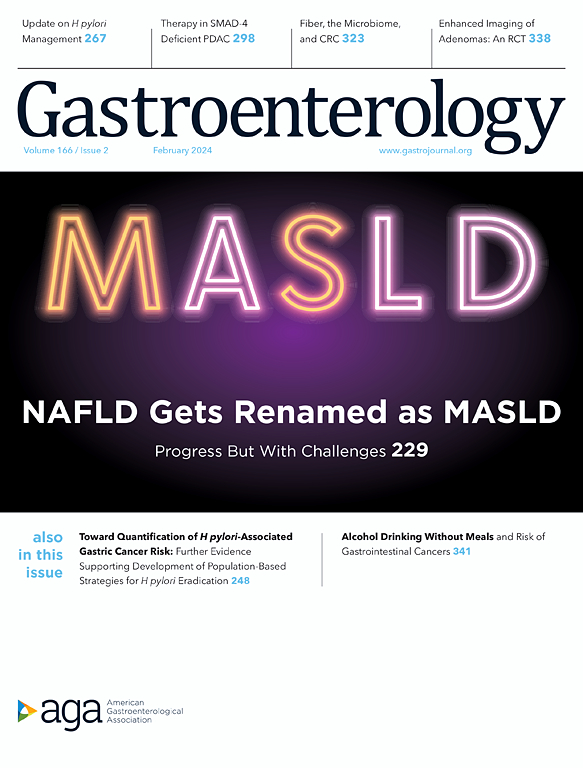A novel, IBS-specific IgG ELISA-based elimination diet in irritable bowel syndrome: A randomized, sham-controlled trial
IF 25.7
1区 医学
Q1 GASTROENTEROLOGY & HEPATOLOGY
引用次数: 0
Abstract
Background & Aims
Personalized dietary therapies for irritable bowel syndrome (IBS) are needed and an IgG-antibody-based elimination diet presents a potential solution. However, existing studies have serious methodological limitations. This study aimed to assess the efficacy of an elimination diet utilizing a novel IBS-specific IgG assay.Methods
We conducted a randomized, double-blind, sham-controlled trial enrolling subjects with IBS from 8 centers. Subjects positive for ≥1 food on an 18-food IgG assay and an average daily abdominal pain intensity (API) score between 3-7.5 on an 11-point scale during a 2-week run-in period were randomized to either an experimental antibody-guided diet or sham diet for 8 weeks. The primary outcome was a ≥30% decrease in API for ≥2 of the last 4 weeks of the treatment period.Results
Among 238 randomized IBS subjects, 223 were included in the modified intention-to-treat analysis. A significantly greater proportion of subjects in the experimental diet group met the primary outcome than those in the sham diet group (59.6% vs. 42.1%, P=0.02). Subgroup analysis revealed that a higher proportion of IBS-C and IBS-M subjects in the experimental diet group met the primary endpoint vs. the sham group (67.1% vs. 35.8% and 66% vs. 29.5%, respectively).Conclusions
Subjects on an IgG-guided elimination diet were more likely to achieve the primary endpoint than those on a sham elimination diet. Subgroup analysis suggests a more robust benefit for subjects with IBS-C and IBS-M. This highlights the potential effectiveness of a personalized elimination diet based on a novel IBS-specific IgG assay. A larger study is warranted to validate these observations.求助全文
约1分钟内获得全文
求助全文
来源期刊

Gastroenterology
医学-胃肠肝病学
CiteScore
45.60
自引率
2.40%
发文量
4366
审稿时长
26 days
期刊介绍:
Gastroenterology is the most prominent journal in the field of gastrointestinal disease. It is the flagship journal of the American Gastroenterological Association and delivers authoritative coverage of clinical, translational, and basic studies of all aspects of the digestive system, including the liver and pancreas, as well as nutrition.
Some regular features of Gastroenterology include original research studies by leading authorities, comprehensive reviews and perspectives on important topics in adult and pediatric gastroenterology and hepatology. The journal also includes features such as editorials, correspondence, and commentaries, as well as special sections like "Mentoring, Education and Training Corner," "Diversity, Equity and Inclusion in GI," "Gastro Digest," "Gastro Curbside Consult," and "Gastro Grand Rounds."
Gastroenterology also provides digital media materials such as videos and "GI Rapid Reel" animations. It is abstracted and indexed in various databases including Scopus, Biological Abstracts, Current Contents, Embase, Nutrition Abstracts, Chemical Abstracts, Current Awareness in Biological Sciences, PubMed/Medline, and the Science Citation Index.
 求助内容:
求助内容: 应助结果提醒方式:
应助结果提醒方式:


